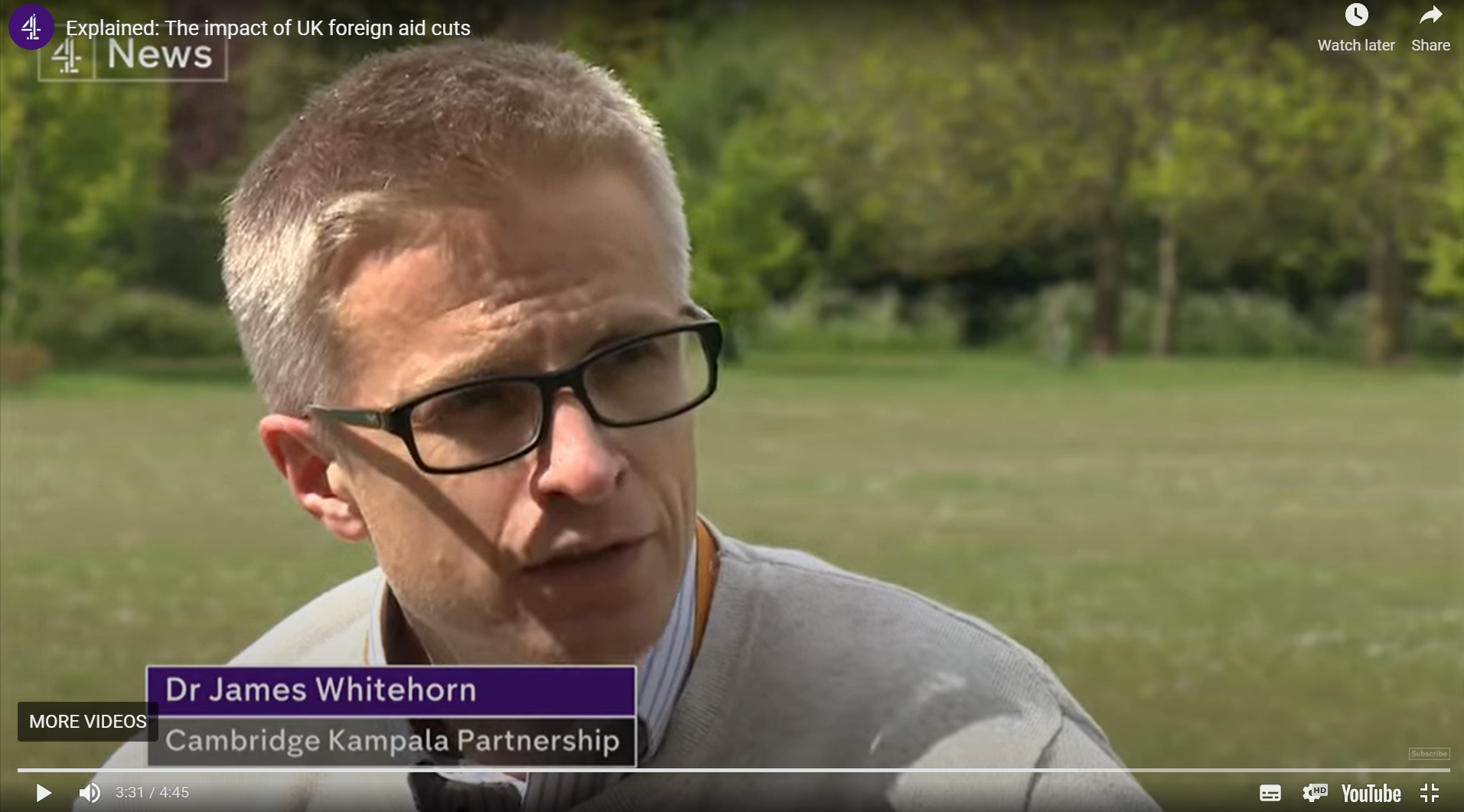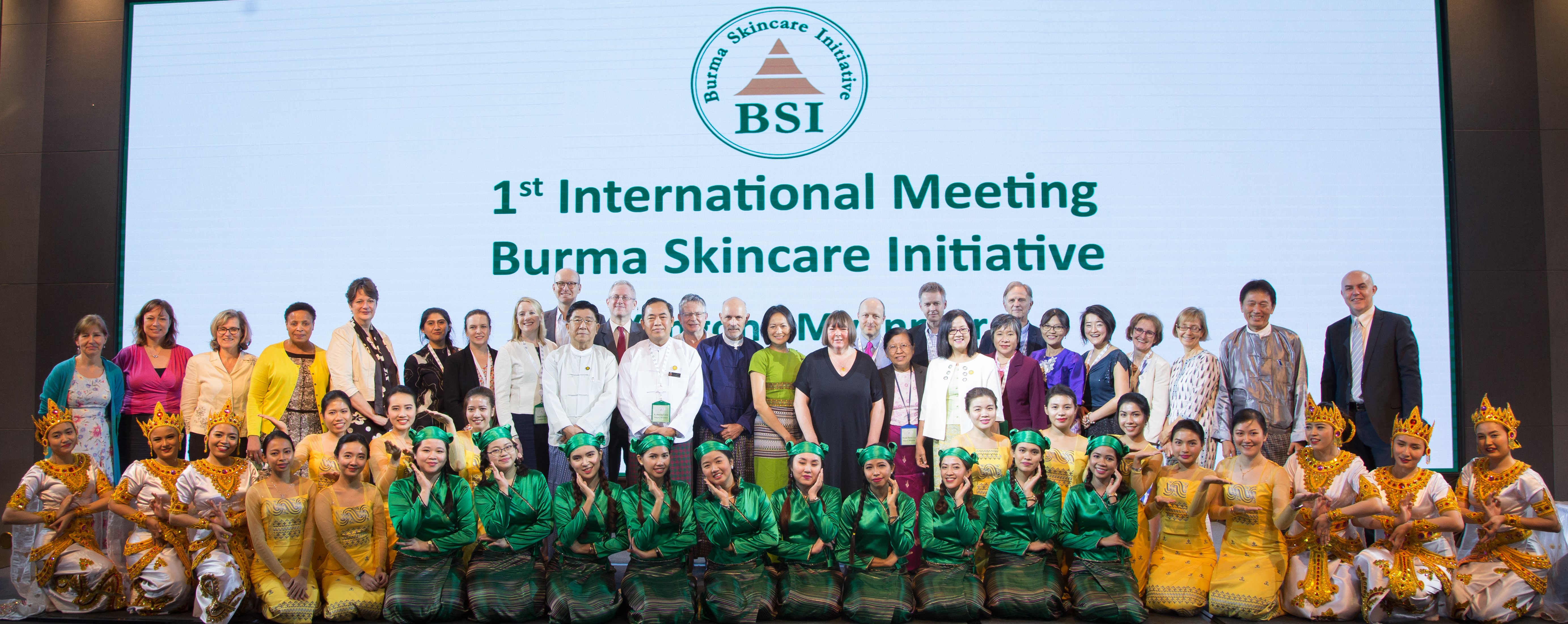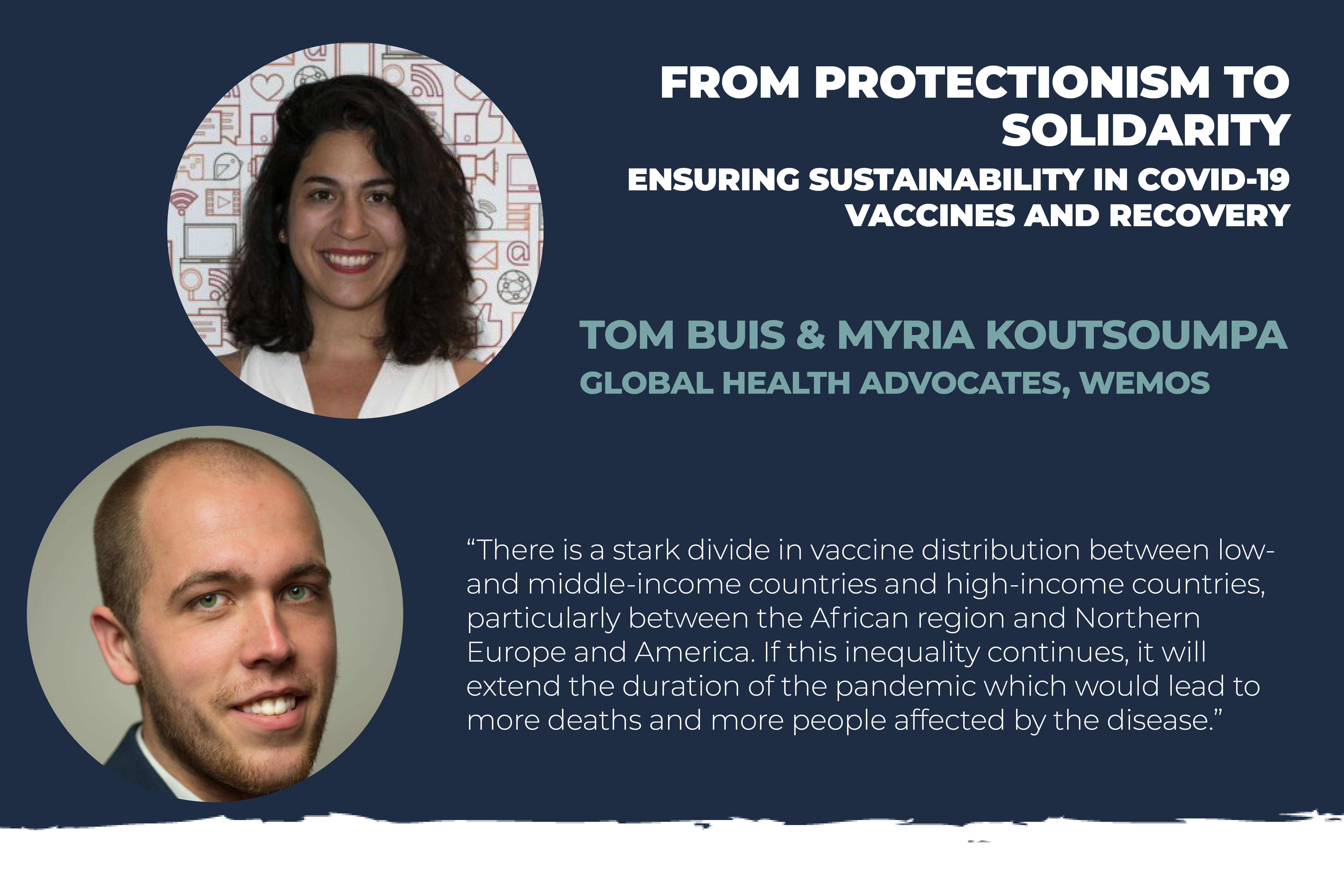
Help us challenge the status quo!
There are many effective actions you can take, but it can be hard to know where to begin!


This Action Pack provides a range of practical guidance and top tips to help you add your voice in support of meaningful change, whatever your experience.
As you move through the page, we hope that you will enhance your knowledge and understanding of:
- Campaign tactics
- How to gain support among key stakeholders
- What makes an effective story


What is campaigning?
Building a world where everyone has access to quality healthcare requires change – which is exactly what campaigning aims to create. Campaigning involves carrying out a series of activities that are designed to influence attitudes, policies and practices. A successful campaign not only raises awareness of a particular issue but mobilises more people to speak up and act in support of your cause.
Partnership is at the core of effective campaigning. THET recognises that the incredible strides and achievements made by the global health community would not be possible without collaboration and solidarity. In a time where partnership in global health is needed more than ever before, we invite you to join us in making change. To build stronger health systems. To prioritise health equity. To unite with your fellow health workers – wherever they are in the world.
Campaign Tactics
In this section, we explore some of the tactics you may want to use when campaigning. -

Sharing Your Story
How to communicate effectively: Whether you’re writing a blog or sharing campaign updates on social media, to ensure that what you are communicating is as effective as possible, you should aim to meet most or all of these characteristics.
Think about your audience: It is important to consider your audience. Different and diverse audiences interpret and take in information in different ways and there are key questions to consider:
- What level of understanding does the audience have about the topic you are discussing?
- Is the format suitable for the audience (in terms of length, style, presentation)?
- What tone will they best respond to? E.g. formal, conversational, friendly or informative.
- What do you want the audience to think after engaging with your content?
How to maximise your impact: What you share or say will have limited impact unless it is heard, distributed and used by others. Dissemination can take place through a variety of communications channels, such as speaking at national, international and local conferences or webinars, sharing case studies with relevant stakeholders to demonstrate best practices and lessons learnt, and promoting written and audio-visual content through social media.

TAKING ACTION
Reaching Your MP
MPs depend on their constituents to educate them about what issues are most important to them. That is why an MP is more likely to read and prioritise anything their constituents send, over an email from THET. Writing a letter only takes a short amount of your time. It ensures that the people who have been elected to make decisions on your behalf know how you want to be represented.
Top Tips
- Research your MP. You can do this by checking theyworkforyou.com which allows you to find out details about your MP such as their areas of focus and their voting record. If they are interested in any issues relating to global health, you can include this in your letter or email.
- Personalise your writing by sharing your personal and/or professional experiences of global health engagement. An original letter sent by one committed, passionate constituent is far more powerful and engaging than several identical letter templates.
- Be succinct. Try to articulate your concerns in less than two pages. Keeping your letter or email short will increase the chance of your MP paying attention to all the information you give them.
- Include a call to action. Be clear about your ask, make sure your statement is short, succinct and actionable.
- Persistence is key. MPs can be very busy, and their post and emails are often processed by a small team. If your MP is taking a while to reply to you, do not hesitate to follow up with another email or a call!
With increased social distancing and a need to avoid large gatherings, the COVID-19 pandemic has shifted the ways we campaign and required us to find new ways to organise, reach out to people, and create change. Through the use of online communication platforms, or even just a simple phone call, you can clearly communicate your campaign message and effectively engage with your peers and/or those with decision-making power.
Top Tips
- Have your key points and facts to hand. You can find relevant statistics and figures on global health from a variety of sources, including the World Health Organization, Devex and Action for Global Health.
- Prepare in advance. Know what you are going to say, and be clear on what action you are hoping your MP will take after you meet them (For example, do you want them to attend or speak at a local event, write to other local decision-makers or the media on your behalf?)
- Stay focused on the campaign issues. Share your personal experiences of global health engagement and highlight the mutual benefits. Not only are these compelling, but they also provide evidence to support your ask.
- Thank your MP for their time, confirm and write down agreed action points. Send a follow-up email with these details.
- Maintain engagement. Once you have made initial contact with your MP, think of ways to keep your campaign in their mind.
Events
Our research has shown that many health workers within the NHS want to hear about global health from their fellow health workers. Organising and speaking at events is an effective way of using your lived experiences to inform, inspire and influence.
As well as galvanising your peers in support of global health, you can invite your local MP to find out more about the work of your NHS Trust or Health Partnership.
Health Advocates Network!
If you are looking for opportunities to add your voice in support of global health, you can sign up to THET’s Health Advocates Network, a go-to resource for organisations looking for spokespeople, including advocacy organisations and media outlets. Serving as a speaker bureau, this network is designed to provide a platform for health workers to share their experiences and take part in collaborative advocacy within the global health sector. Whether you’re a health worker or represent an organisation, find out more and sign up for free here.
Gaining Organisational Buy-In
Whether you’re involved in a Health Partnership or have taken part in a global health project, gaining buy-in within your organisation can provide vital support for your campaign. This can be a challenging process, but here are some suggestions on how you might go about it:
- Discuss the value of global health partnerships and projects during formal meetings with key stakeholders.
- Aligning these arguments your organisation’s strategy can also help!
- Using evidence to demonstrate the impact of global health work e.g., through the application of learning.
- Sharing personal stories or experiences.

Working Together
The power of a collective voice can never be understated. Movements around the world have proven to be most effective when they are joined by multiple organisations and individuals all advocating for the same call to action. It is crucial to ask who else might share your goal. Through collaboration you can grow your audience, expand your content and increase the salience of your message.
A few key things to remember as you invite others to join your call for change:
- Simplify your ask: What is it you would like them to do as collaborators?
- Listen to those you wish to collaborate with: What ideas do they have?
- Share the space: Create content that can be use on everyone’s channels.
- Champion everyone’s contributions: Highlight the work you are all doing.
Using Social Media
Social media is a fantastic way to raise awareness about your campaign or cause. Through platforms such as Instagram, Twitter and Facebook you can provide real-time updates, share news, communicate with key stakeholders and collaborate with users from across the global health community.
Our social media top tips
Choose a platform that you feel most comfortable using (Facebook Twitter, or Instagram) and focus your energy there. You don’t need to post on every platform to have an impact; think about where you already spend your time.
- Consistency is key: aim to post at least once per day.
- Use hashtags (#) to reach more people and boost engagement by making your posts discoverable in on-platform searches.
- Engage in conversation by tagging (using the @ function) key stakeholders, including the media, decision-makers and organisations or individuals advocating for the same cause.
- Make sure you are confident about the content you are sharing – is it from a reliable source? Has it been verified?
- Make your Tweets stand out by adding visual or audio-visual content, such as photographs, infographics or short videos.
- Retweet posts shared by others to amplify their voice, highlight their work, and offer new perspectives to your followers.
- Create share-worthy content – this includes personal stories, data, breaking news and content that is visually engaging such as photographs, infographics or short videos.
- Join relevant community Facebook groups and follow relevant pages to keep up to date with others working on the same cause.
- Share your campaign events, petitions, or news in the relevant groups.
- Use static posts to document and share photo-worthy moments during your campaign.
- Use stories to share images or videos captured in the moment. This will help you to share your story in an authentic way and engage with your audience in real time.
- Like on Twitter, use hashtags (#) to reach more people and boost engagement by making your posts discoverable in on-platform searches.
- Engage in conversation by tagging (using the @ function) key stakeholders, including the media, decision-makers and organisations or individuals advocating for the same cause.
- Avoid sharing lots of information or complex datasets
Working With the Media
Gaining media coverage on a local level through newspapers, radio or TV stations is a great way to build awareness of your campaign and influence local decision-makers. On a regional or national level, it can be an effective method to help shape public opinion and draw attention to your cause.

How to make your story newsworthy
In addition to the effective communications principles you heard about earlier, there are a few additional considerations that can help you get your story in the press.
- Stand out. Make sure you have an attention-grabbing hook or headline.
- Keep it local. If you are targeting local media, ensure your story is relatable for members of your community.
- Stimulate action. Depending on the focus and aim of your story, you might want to strike an emotional or inspiring tone to motivate readers or viewers to take action.
- Keep the individual at the heart of your story. Ensure you have identified a spokesperson or spokespeople who are willing to be the face or voice of the story. Whether you or a member of your team play this role, or someone who is affected by the issue you are highlighting, make sure they are well briefed and can powerfully convey your key messages.
Sharing your story
Once you have crafted your newsworthy story, the next step is to share it with the media. The most effective way to do this is to draft a press release (click here to download our template) and target the journalists and/or news desks who might be interested in covering it:
- What geographical area do they cover? Make sure your story is relevant to their local reporting patch.
- What topics do they run stories on and who are they written by? National media outlets will often have a health editor, correspondent or reporter who may take an interest in your story.
- Which outlet suits your story best? If your story is time-sensitive, consider pitching to radio or TV as they tend to break news faster than newspapers. If your story is complex, prioritise newspapers because they specialise in the longer, more comprehensive stories.
- Timing is everything. The cycle of news media is often very fast-paced. While local newspapers typically have weekly deadlines, some newspapers operate on a 24-hour news cycle, with digital versions posting even more often frequently.
Ethical Communications and Data Protection
Making your story stand out is only part of the puzzle; you must also make sure that it is ethical and fair.
Whether you’re interviewing a colleague for a Health Worker Profile or sharing their story with a journalist, upholding their right to participate and be heard, to experience respect and dignity, to make free and informed decisions, and to be protected from risk and harm, should be your number one priority. This involves having an honest an open conversation about how you intend to use and store their data (e.g. written testimony or photo), guaranteeing anonymity if it is requested, and considering any potential negative consequences that could arise for those who choose to share their story.
At THET, we are guided by a Code of Conduct on Ethical Storytelling a range of supporting tools, including photography and interview consent forms, which help us to ensure that our content is gathered, managed and used ethically by our staff and our partners (including volunteers involved in our programmes). These are available on our website here.








